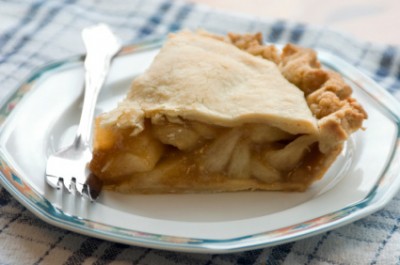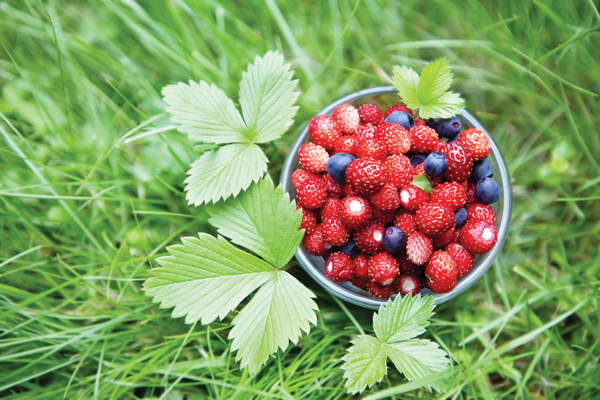Your Health Checkup: Marijuana and Your Health
“Your Health Checkup” is our online column by Dr. Douglas Zipes, an internationally acclaimed cardiologist, professor, author, inventor, and authority on pacing and electrophysiology. Dr. Zipes is also a contributor to The Saturday Evening Post print magazine. Subscribe to receive thoughtful articles, new fiction, health and wellness advice, and gems from our archive.
Order Dr. Zipes’ new book, Bear’s Promise, and check out his website www.dougzipes.us.
When I wrote about marijuana (cannabis) previously, I emphasized that its legalization in multiple states as well as increased recreational use, especially among young people, have heightened the need to better understand its potential benefits and harm. Because multiple formulations exist, including edibles, transdermal formulations, combustible smoking, and vaping, assessment is difficult since each can impact health differently.
In general, marijuana exposure impairs thinking, psychomotor skills, and driving ability, and can inflame bronchial airways, leading to bronchitis. While the adverse cardiovascular effects are less certain, multiple reports have noted heart rhythm problems such as atrial fibrillation, ventricular tachycardia (rapid heart rates from the bottom heart chamber), and acute coronary syndromes such as heart attacks, cardiac arrests, and strokes.
The most definitive report on medical and recreational use and cardiovascular health has just been published as a scientific statement from the American Heart Association. They note its beneficial effects on pain, cachexia (wasting), nausea, vomiting and spasticity, but that there are no well documented beneficial effects on the heart and blood vessels.
Multiple compounds, particularly tetrahydrocannabinol (THC) and cannabidiol (CBD), determine the impact of cannabis products that can contain pure THC or CBD or their combination. The two compounds exert profoundly different actions on the heart and blood vessels. THC exerts generally negative actions by stimulating the system of nerves (sympathetic nervous system) that increases heart rate, need for oxygen by the heart muscle, blood pressure, and platelet stickiness, and makes the inner lining of blood vessels function abnormally. The increase in oxygen demand by the heart and decreases in heart muscle oxygen supply can trigger angina or even heart attacks in people with preexisting coronary artery disease, particularly when cannabis is smoked.
CBD appears more beneficial than THC and may reduce heart rate and blood pressure, improve blood vessel function, and reduce inflammation. CBD is non-psychoactive, is found in cannabis plants like marijuana and hemp, and has no recreational application. The only investigations of CBD subjected to rigorous study are those for epilepsy and schizophrenia, so claims of benefits for a host of other illnesses remain unsubstantiated.
Cannabis can have addictive qualities with long term exposure, and users may experience withdrawal symptoms such as anger, anxiety, restlessness, irritability, depressed mood, disturbed sleep, strange dreams, decreased appetite, weight loss, headache, and night sweats if cannabis is suddenly stopped, the dose is reduced, or formulation changed. In addition, tolerance occurs with chronic use.
Except for nicotine, adolescents abuse cannabis more than any other drug. Because the brain continues developing until approximately 21 years, adolescent exposure to marijuana can be particularly harmful. Use before age 16 or 18 has been associated with poorer sustained attention and reduced verbal IQ, along with abnormal structural changes in the brain. Pregnant women or those considering becoming pregnant should refrain from using cannabis because of potential damaging effects on the fetus.
Before using cannabis, consider potential risks and benefits for the various forms of drug and administration. Cannabis obtained from the black market, especially synthetic illicit cannabinoids, should be avoided because of possible adulteration, contamination, and questionable dosages. Smoked or vaporized cannabis in general should be shunned, especially in patients with respiratory diseases. Cannabis should not be used in combination with alcohol or drugs that affect mental activity. People with psychiatric conditions should avoid compounds containing primarily THC with little or no CBD.
Many rumors and fallacious claims about the health benefits of cannabis products exist, and users should be wary. If something sounds too good to be true, it usually is.
Featured image: Cannabis plants (Tatevosian Yana / Shutterstock)
News of the Week: Best Places to Live, Good Health Habits, and Some Great American Pies
What Do San Francisco and Boise Have in Common?
Every year, U.S. News & World Report issues a list of the best metro areas in the U.S. to live in, based on a survey of readers. The list is based on many things, including cost of living, jobs, crime statistics, access to good education and healthcare, and other factors. Here’s this year’s list of the top 25.
Number 25 is Omaha, Nebraska, for its affordability. Number 15 is the Dallas-Fort Worth, Texas, area, for the growth and job market. And number one? It’s not Boston (which comes in at number 8 for the low unemployment rate and high salaries) but it does rhyme with it.
The worst place to live in America? For the 30th year in a row, it’s Cabot Cove, Maine. Everybody gets murdered there!
Don’t Eat at Midnight
The common wisdom has always been that if you eat the right kinds of foods (vegetables, fruits, low-fat and low-carb foods) and avoid the bad stuff (too much pasta, too much saturated fats, boxes of Ring Dings) and get some exercise, you’ll be all set. Now we find out that we have to be aware of when we eat foods, too.
Researchers at the American Heart Association say that people who eat breakfast are healthier in general than people who skip it; they have less heart disease and are less likely to have high cholesterol or high blood pressure. Even their blood sugar levels and metabolism are better. Yeah, the “breakfast is the most important meal of the day” saying comes to mind.
Research also suggests that if you eat most of your meals and calories earlier in the day, you’ll be healthier. In other words, try to skip that leftover pizza or that bag of Reese’s Peanut Butter Cups while you’re watching The Tonight Show.
I’m not saying I ate a bag of Reese’s Peanut Cups last night at midnight, but I’m sure somebody somewhere did.
RIP Richard Hatch, Professor Irwin Corey, and Alec McCowen
Richard Hatch was best known as Captain Apollo on the original Battlestar Galactica. He also took over for Michael Douglas on The Streets of San Francisco when Douglas left the series in the last season, and had roles on All My Children, Hawaii Five-0, Murder, She Wrote, Dynasty, Santa Barbara, and many other shows and movies. He wrote three Battlestar Galactica novels and tried to get an updated version of the show on the air in the late ’90s but it didn’t happen. A different version did become a hit show in 2004, and Hatch appeared as a different character, Tom Zarek.
Hatch died after a battle with cancer. He was 71.
Professor Irwin Corey is a rather hard–to-describe personality. He was a comic famous for long riffs that included weird wordplay, but he was also an actor, appearing in such movies as Car Wash, I’m Not Rappaport, Jack, and Woody Allen’s The Curse of the Jade Scorpion, as well as TV shows like The Phil Silvers Show and Doc. He also appeared on stage with Richard Dreyfuss in Sly Fox and Marlo Thomas in Thieves. And he had appeared on many variety shows and game shows since the 1950s.
Corey was 102. Here he is on Late Night with David Letterman in 1983.
British actor Alec McCowen had many acclaimed roles on the stage, including in St. Mark’s Gospel, Ivanov, King Lear, Equus, Waiting for Godot, The Philanthropist, and Kipling, but he was a film actor as well. He played the inspector in Alfred Hitchcock’s thriller Frenzy, and even played gadget-guru Q in the unofficial James Bond movie Never Say Never Again. He was also in Gangs of New York, A Night to Remember, The Loneliness of the Long Distance Runner, and Hanover Street, along with dozens of British and American TV shows.
McCowen passed away Monday at the age of 91.
Throwing Shade at Arancini in Your Safe Space
Back in September I told you about the new words being added to the Oxford English Dictionary. Now Merriam-Webster has released its list of new words too.
The list released this past week includes ghosting, which is when you suddenly cut off contact with a friend; throwing shade, where you insult someone in a subtle way; microaggression, a term we heard a lot during the presidential election that means (supposedly) a discriminatory action or comment that hurts another person or group; binge-watch, where you watch several episodes of a TV show in a row, thereby getting caught up and probably ruining the experience for you; and safe space, a term popular on college campuses now that Merriam-Webster defines as “a place intended to be free of bias, conflict, and criticism.” In other words, a place that doesn’t or shouldn’t exist.
They’re also adding arancini, which are rice balls. I have no idea why that wasn’t a word already or why it’s suddenly in vogue to the level that it needs to be added in 2017. Was there an arancini meme or hashtag I missed on social media?
Do we even need new words in the dictionary? I don’t think we’ve used all the old ones yet.
Vera Lynn to Release Album for 100th Birthday
I’ll be completely honest and say that I didn’t even realize Vera Lynn was still with us. Not only is she still going strong at 99 (she turns 100 on March 20), she’s going to release an album! The British singer’s Vera Lynn 100 will feature her original vocals — on songs such as “The White Cliffs of Dover” and “Auf Wiederseh’n, Sweetheart” — set to new orchestral arrangements.
The London Palladium will also hold a special concert in honor of Lynn on March 18.
This Week in History
Aaron Burr Born (February 6, 1756)
The Broadway musical Hamilton is massively popular. But does it get Aaron Burr wrong?
The Boy Scouts of America Founded (February 8, 1910)
Here’s a great essay from Jeff Csatari, who modeled for Norman Rockwell’s last calendar painting for The Boy Scouts of America, “Spirit of 1976.”
February Is Great American Pies Month
 I have a weird confession to make: I don’t really like homemade pie. It’s not that I dislike it, it’s just that I find that it’s often too flaky, and the apples aren’t what they should be. And I absolutely hate hot pie. I can’t eat a pie hot (or warm). It has to be ice cold. I’m pretty sure this is because I used to eat store-bought Table Talk pies when I was a kid, and they’re still the pies I go to when I buy pies. I just think they taste better.
I have a weird confession to make: I don’t really like homemade pie. It’s not that I dislike it, it’s just that I find that it’s often too flaky, and the apples aren’t what they should be. And I absolutely hate hot pie. I can’t eat a pie hot (or warm). It has to be ice cold. I’m pretty sure this is because I used to eat store-bought Table Talk pies when I was a kid, and they’re still the pies I go to when I buy pies. I just think they taste better.
But most people like hot, homemade pie, so don’t let me stop you from making them!
Apple pie is probably the most American of the American pies, so to celebrate Great American Pie Month in a real American way, here’s a classic recipe from the most American of magazines. Here’s one from Curtis Stone, Spiced Apple Pie. And if you’d like to put apple pie in some historical perspective, here’s an interesting piece from the July 25, 1942, issue of The Saturday Evening Post, “The Decline of Apple Pie.”
Just make sure you don’t make eating pie at midnight a regular habit.
Next Week’s Holidays and Events
Valentine’s Day (February 14)
Sure, you could look at all of the great love-related Saturday Evening Post covers or spend a special night out with your significant other, but what if you don’t have someone? You can celebrate Singles Awareness Day, which is officially February 15 but often celebrated on Valentine’s Day. And please note what the acronym is.
National Drink Wine Day (February 18)
If you didn’t drink enough wine on Valentine’s Day, you can do it today. There’s even an official web site for it. I suggest a nice Cabernet Sauvignon.
Eat Color!

Foods naturally red, blue, and purple contain powerful anthocyanin antioxidants widely believed to benefit the heart and blood vessels. And now there’s proof that eating three or more servings of strawberries and blueberries per week may help women reduce their risk of a heart attack by one-third—according to a large study of women aged between 25 and 42 registered with the Nurses’ Health Study II. Scientists from the University of East Anglia in collaboration with the Harvard School of Public Health say anthocyanins in berries may help dilate arteries and counter the build-up of plaque. “We have shown that even at an early age, eating more of these fruits may reduce risk of a heart attack later in life. This is the first study to look at the impact of diet in younger and middle-aged women,” says the lead researcher.
The American Heart Association recommends at least 4.5 cups per day of fruits and vegetables as part of a healthy lifestyle that can help avoid risks for heart disease and stroke. Eating enough fruits and vegetables also has other benefits: the recommendation to reduce cancer risk is the same.
Breakfast Mousse for Mom
Strawberry Breakfast Mousse Creme

Recipe from the American Heart Association
Show Mom just how sweet she is with mousse in the morning. You can even make it up to 24 hours in advance. Also check out the Post‘s California Party Quiche and Eggs for Brunch!
Makes 4 servings
- 1 cup quartered strawberries
- 1/2 cup low-fat ricotta cheese
- 1/2 cup fat-free vanilla yogurt
- 2 tablespoons all-fruit strawberry spread
- 3/4 cup fat-free frozen whipped topping, thawed in refrigerator
- 4 fresh mint springs (optional)
In blender, process strawberries, ricotta, yogurt, and strawberry spread for 20 to 30 seconds, or until smooth, stirring halfway through.
Pour into medium bowl. Gently fold in whipped topping. Spoon into custard cups or small bowls. Garnish with mint.
Cook’s Tip: This strawberry mousse is also delicious spooned over fresh berries, such as blueberries. A serving would be a 1/2 cup fresh berries and 2 tablespoons mousse.
Nutrition per 1/2 cup serving
Calories: 114
Total Fat: 1.5 g
Saturated Fat: 1 g
Trans Fat: 0 g
Polyunsaturated Fat: 0g
Monounsaturated Fat: 0.5 g
Cholesterol: 8 mg
Sodium: 58 mg
Carbohydrates: 20 g
Fiber: 1 g
Sugars: 14 g
Protein: 4 g
Dietary Exchanges:
1 1/2 carbohydrate
Look for other delicious recipes in American Heart Association cookbooks, available from booksellers everywhere, and at americanheart.org/recipes.